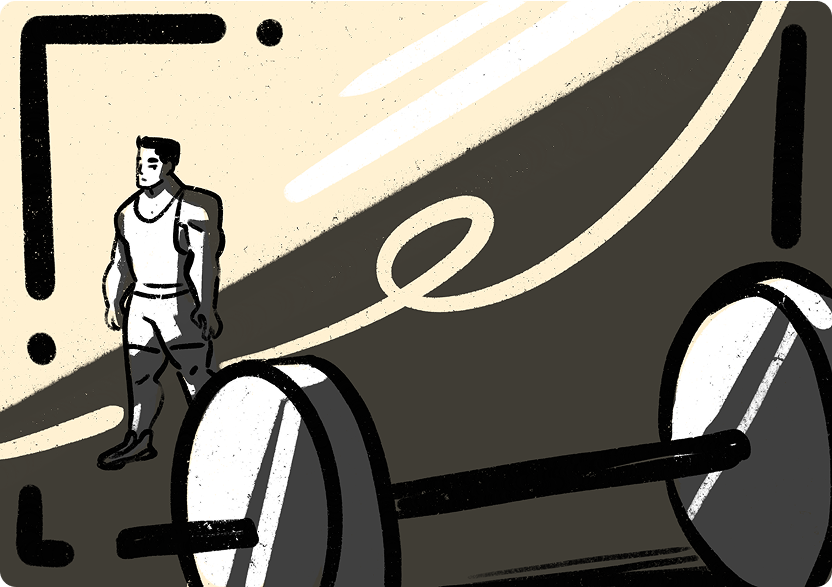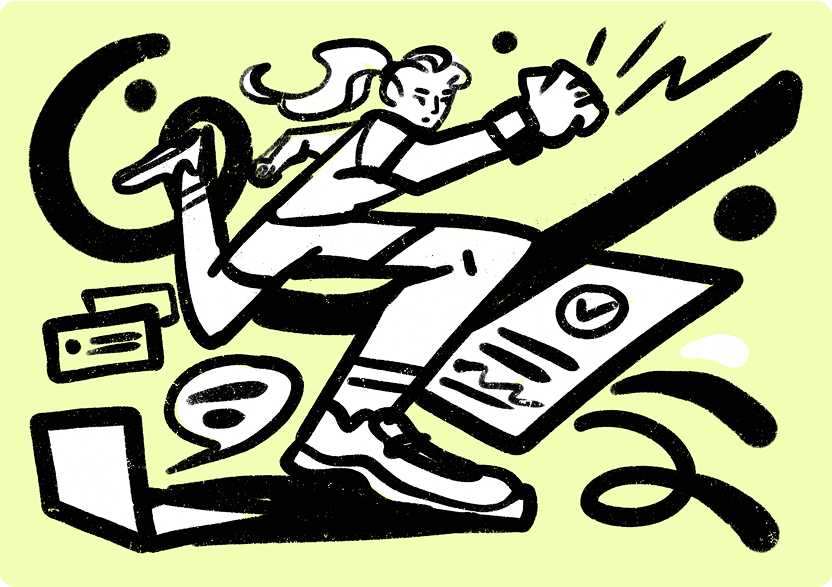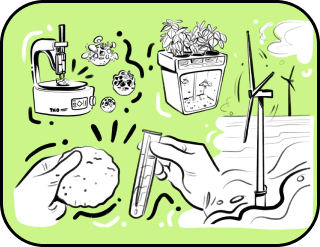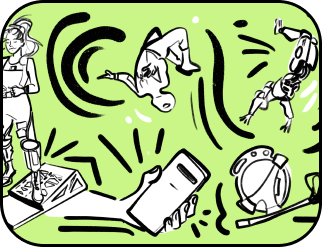Category: Life technologies
How not to become a sports “alcoholic”
“Champions aren’t made in gyms. Champions are made from something they have deep inside them: a desire, a dream, a goal”
Muhammad Ali
Evening Plan: drying – bars – abs.
It’s great if the abs are colorful, the bars have a creamy filling, and the drying is sweet and sugary. It’s bad if this version didn’t even flash through your mind. It’s very bad if the only thing you consider “defined” is your muscle tone.
“Sportaholic,” “gym junkie”—words not yet in the dictionary. Yet. “Addiction,” “obsession”—words we increasingly have to use to describe the symptoms of an unhealthy relationship with fitness.
A shopaholic opens a wallet. An addict reaches for a fix. An athlete puts on their running shoes. These actions are links in the same chain of cause and effect: childhood trauma. Adult trauma. Stress. Emptiness.
The mall. The bar. The gym.
A spike of dopamine euphoria. An overwhelming desire to “do it again.” The pain of withdrawal. Action for action’s sake doesn’t solve anything. Trauma – stress – emptiness – addiction. You’re not better. Physical effort is just one step away from self-abuse: one more plate on the barbell, one more “set,” one more lap around the track. The very definition of a vicious cycle.
If your running in place starts to turn into running away—from yourself or from others—it’s better to stop in time. An early finish can be your saving grace. We hand you checkered flags—homemade or with buttons.
“To escape, you don’t need to know where you’re going—only where you’re running from”
Victor Pelevin, Chapayev and Void
1. Heartfelt confession. Without this critical moment, you won’t be able to take that extra plate off the barbell. Say it out loud: “Sport is more than just physical activity for me.” You don’t need to go on about life’s meaning or your values.
Let’s run a small citrus test to be sure. We hope you are not allergic. Mentally draw a large, fresh, juicy orange on a clean sheet of paper—a clean slate. How many slices would you take to the gym? If only the peel remains, it’s time to hit “pause” on your current relationship with fitness. For the sake of self-education, art, or any other areas you’ve unfairly neglected.
2. Creative Workout Reset. As Vysotsky once said, even “deep breathing” can lead to exhaustion. Save your energy for breathing out—and for other vital things beyond stretching and jumping. Reduce the intensity and duration of your workouts. A gradual “dose reduction” works well in alcohol addiction therapy. A break feels less painful than a breakup. Discuss a new, gentler routine with someone impartial—perhaps a new coach, whose fresh outlook could help restore your mental balance.
3. Replace Sports-Fueled Emptiness with Alternatives. Recall how it all started. Divorce—pole dancing. Job loss—deadlifting. The world of sports offers countless options to fill every emotional gap. But there are other ways. Look around. Vinyl collectors wear out their sneakers hunting records. Avid readers miss their metro stops while caught in plot twists. Dopamine from these activities feels just as good—but without the damage. Give it a shot. You’ll like it. It may not feel as intense, but it won’t wreck your mental health.
Thanks to marketers and influencers, modern sports are a giant kingdom where everyone’s supposedly royalty, destined for Olympic heights. Don’t believe the funhouse mirrors. Be yourself.

“…Every person is tied to their own string—and that string is stronger than they are…”
Maxim Gorky, The Life of Klim Samgin
1. Digital Workouts. A life dissolved in sport can be vibrant—and short, if the body’s resources weren’t designed to handle that level of brightness. To cool off the sports fever, let’s use technology to activate the self-preservation instinct. Shift the unit of measurement for your athletic progress from abstract scores and numbers to something tangible—like heart rate. Chest and wrist heart rate monitors can alert you when a workout has crossed the line from beneficial training to unnecessary endurance test. These devices sync with sports watches, allowing you to keep your finger on the pulse—literally—and make the one right choice: end the workout early and claim victory over obsession. A non-sporting mindset will, over time, destroy even the most athletic body.
2. Neural Network Support. The risk of developing a manic attachment to machines, balls, or punching bags increases under unhealthy, poorly structured workout routines. “DIY” workouts are a slippery slope. Time to turn away—toward “smart” sports and truly high personal achievements. Give yourself a new chance to breathe easy in training, thanks to apps powered by neural network algorithms. Based on your physical data, the app will generate a personalized training plan, recommend the best way to curb your sports cravings with proper nutrition (and how to prepare it), and offer objective feedback on your gym visits.
Comprehensive “smart” training support is already well implemented—for example, in the MySwimEdge project, designed for amateur and professional swimmers. A sensor attached to the swimmer’s waist gathers data on movement patterns. This information is analyzed by the app and presented as a detailed “flight analysis.” With the right conclusions, the swimmer can fine-tune their technique—without spiraling into endless, meaningless pool laps.
3. Sports Psychotherapy Course. The danger of addiction is that the person lost in the gym gradually expands a zone of emotional isolation. Family and friends drift away as the obsession hits “Addiction” level. Irritability. Apathy. Withdrawal. Only the gym sign sparks pseudo-positive emotions. Everything else passes by outside the window—only the delivery guy gets in, bringing another dose of protein bars.
At some point, someone may hint that your only true friend is sport. If you can’t argue with that—it’s time to talk. Not with your reflection in the gym mirror, but with a sports psychologist. An outside perspective helps reveal the deviation from normal sooner.
The first challenge for the psychologist is overcoming the typical denial of the problem. It’s hard to convince a sports addict that compulsive training from dawn till dusk is a sign of a mental health disorder. That seventh sweat session at the gym isn’t fixing anything—it’s not meeting the true psychological need for recognition, care, or change in a toxic environment.
Through cognitive-behavioral therapy—successfully used to correct addictive behaviors—deep-rooted misconceptions about sport as life’s sole purpose and universal problem-solver are brought to light and dismantled. The patient will need to remember what triggered their prolonged fall into the athletic abyss. Childhood or adult traumas. Stress.
They’ll need to train not abs, but skills—the ability to see how destructive thoughts (obsessive, rigid thinking) lead to automatic reactions (like adding that one unnecessary plate on the barbell). The goal of psychological “training” is to sharpen the skill of changing your extreme, negative perception of situations that only seem catastrophic. Letting go of imagined burdens naturally leads to reducing overwhelming physical loads.
Escaping into sport was the easy way. Dumbbells, like a wallet or bottle, are usually within arm’s reach. Returning to balance takes more effort. You can’t “get clean” from a stationary bike. Only an active search for a worthy alternative can help. The task isn’t just to fill the void mechanically—but to meet the underlying need in a way that turns the inner black hole into a source of strength.
Sport is traditionally presented as an antidote to bad habits. But these days, there’s no guarantee that replacing one obsession with another will do any good. Sport can be beneficial—but only as long as healthy interest doesn’t turn into an unhealthy obsession. Progressive “sports alcoholism” is hard to beat. On its side are the wellness fanatics, trendy sportswear brands, makers of “special” nutrition, and personal trainers—in short, those who truly don’t care whether you manage to pull yourself out of the swamp by your own hair, like Baron Munchausen.
But The Global Technology magazine does care—that’s why we’re here with you now, offering ready-made solutions to the problem.
Morning plan: tea with a sugar biscuit and off to the countryside. Good thing there’s no need to torture yourself with a cardio session. “Not our day,” the fitness app announced. Fair enough. It’s a day off, after all. Friends are finally coming over to the summer house.

We scatter the fog of guesses with the beam of scientific truth.
Thank you!




